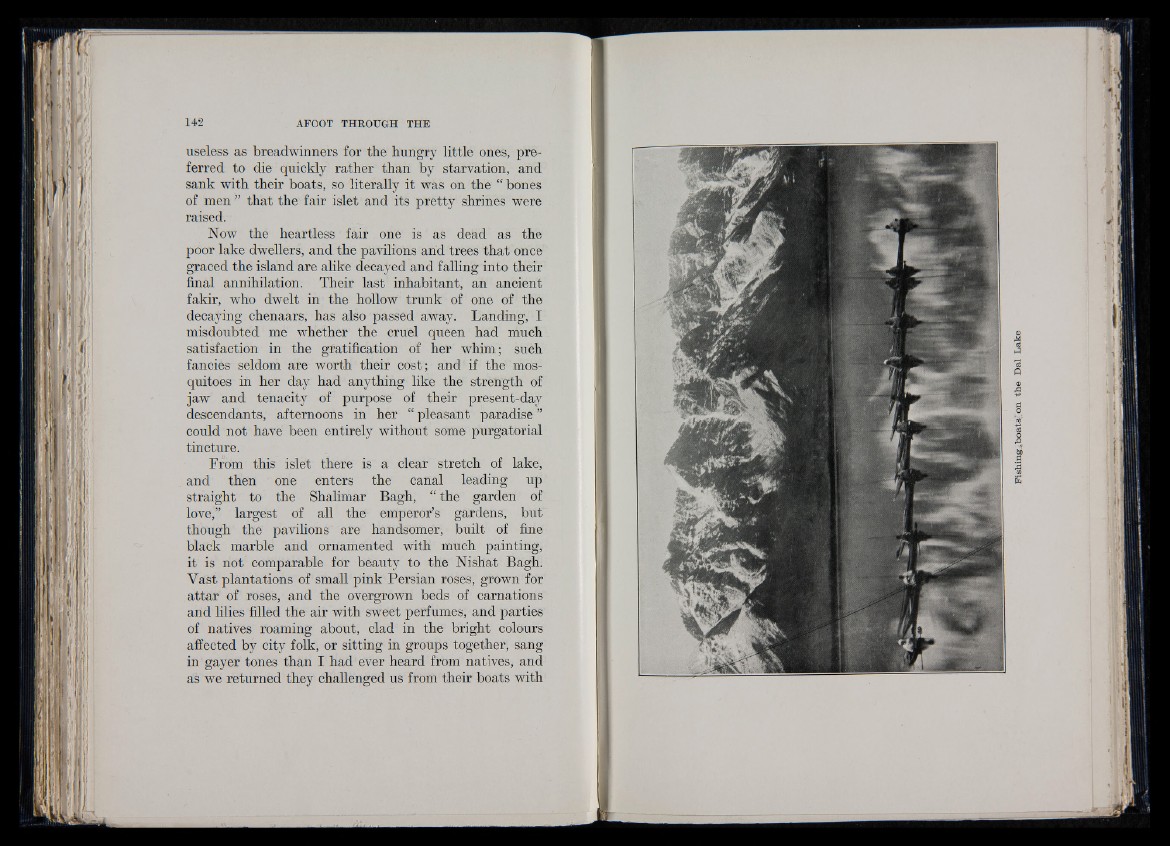
useless as breadwinners for the hungry little ones, preferred
to die quickly rather than by starvation, and
sank with their boats, so literally it was on the “ bones
of men ” that the fair islet and its pretty shrines were
raised.
Now the heartless fair one is as dead as the
poor lake dwellers, and the pavilions and trees that once
graced the island are alike decayed and falling into their
final annihilation. Their last inhabitant, an ancient
fakir, who dwelt in the hollow trunk of one of the
decaying chenaars, has also passed away. Landing, I
misdoubted me whether the cruel queen had much
satisfaction in the gratification of her whim; such
fancies seldom are worth their cost; and if the mosquitoes
in her day had anything like the strength of
jaw and tenacity of purpose of their present-day
descendants, afternoons in her “ pleasant paradise ”
could not have been entirely without some purgatorial
tincture.
From this islet there is a clear stretch of lake,
and then one enters the canal leading up
straight to the Shalimar Bagh, “ the garden of
love,” largest of all the emperor’s gardens,' but
though the pavilions are handsomer, built of fine
black marble and ornamented with much painting,
it is not comparable for beauty to the Nishat Bagh.
Vast plantations of small pink Persian roses, grown for
attar of roses, and the overgrown beds of carnations
and lilies filled the air with sweet perfumes, and parties
of natives roaming about, clad in the bright colours
affected by city folk, or sitting in groups together, sang
in gayer tones than I had ever heard from natives, and
as we returned they challenged us from their boats with